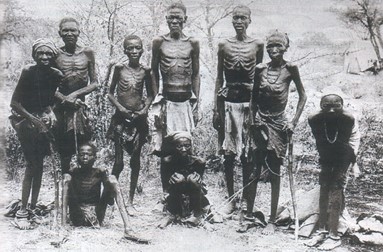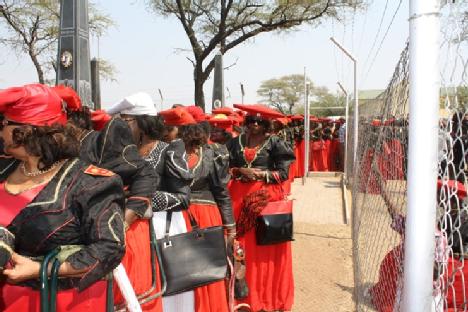Dr Pedzisai Maedza, Newton International Fellowship
Chains of Memory in the Postcolony: Performing and Remembering the Namibian Genocide
German involvement in the colonisation of the African continent broadly, and of Namibia in particular, is sometimes characterised by a ‘social amnesia.’
When and where German’s colonial role is mentioned, it is often in a passing reference to the legacy of the 1884 to 1885 Berlin Conference, where the ‘scramble for Africa’ was formalised. What often escapes attention is the fact that between 1904 and 1908 German forces launched a military campaign with express orders, to exterminate all African resistance to German’s colonial takeover of Namibia.
The Herero Wars were a series of colonial wars between the German Empire and the Herero people of South West Africa (present-day Namibia).
When the extermination order ceased at the end of 1908, many survivors were herded into concentration camps, while others were used as slave labour for German businesses. Many Herero people died of overwork and malnutrition.

Herero genocide survivors who escaped through the desert.
Eugenics experiments
This extermination campaign and its legacy of concentration camps was typified by Eugenics experiments on mixed-race people by individuals such as Eugen Fischer. Eugenics is a pseudoscience that aims to 'improve' the genetic quality of a human population, historically by excluding people and groups judged to be inferior, or promoting those deemed to be superior. Such experiments had wide repercussions which still resonate to this day. For example, this pseudoscience led to the Nazi Nuremberg race laws of 1935, upon which South Africa’s Apartheid laws were modelled.

Part of the Herero procession at the cemetery. Photo by Pedzisai Maedza.
Advancing debates on unacknowledged genocide memorialisation
With the support of the Newton International Fellowship, Dr Pedzisai Maedza from the Department of Theatre and Performance Studies is exploring how the history and memory of the 1904-1908 German-Herero war and its aftermath have been remembered and configured through cultural practices and performance.
Dr Maedza's project investigates how arts and culture can advance debates on unacknowledged genocide memorialisation. The project focuses on the ethical, aesthetic and performance dimensions of how this 'forgotten' genocide has been translated by artists, activists and descendants of victims and how performances at times also take the place of translations of this genocide.
This project considers how commemorative re-enactment events such as the annual Herero Red Flag Day held since 1913 in Central Namibia and other performance works such as Brett Bailey's Exhibit B, help uncover the past, as well as reveal the politics of the present. It suggests that performance is a medium through which knowledge of the past not only endures, but is also transmitted across societies and generations.
